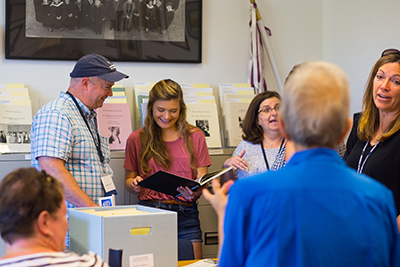 Menu
Menu

With all of this work, you’re going to hear about it! And it can be tempting to want to step in and help, to clear the way for your student. But I want to encourage you to resist. In a wonderful neurological podcast I’ve been following called The Huberman Lab, Dr. Andrew Huberman talks about the brain chemicals of learning: epinephrine, acetylcholine, and dopamine. These powerful chemicals hit just the right levels and combinations for learning when the brain is forced to work through struggle and frustration; if you don’t like being frustrated, he says, whether with a difficult piano etude, a tough Calculus problem, or a tricky reading in Aristotle, you don’t want to learn. So, if you want your son or daughter to learn, to take on this difficult Core Curriculum and major classes,
Let them get a little frustrated.
Don’t save them from flopping on their faces a bit.
Don’t solve their problems for them, whether that is with a professor, a class, a roommate, or the Business Office.
Talk to them about how to solve their problems on their own, then encourage them to fight through the difficulty.
Encourage them that they can solve these problems on their own, by reaching out to the right resources (seeing the professor, seeking out extra tutoring, going to the Writing Lab, talking to an RA in the dorm, addressing questions on their own in the Business Office).
If the stress is getting to be too much, encourage them to seek out the UD Counseling Center, where there are excellent, UD-mission-aligned therapists to help.
So the model is not a helicopter, and definitely not a snowplow; you want to be a cheerleader, a mentor, a guide-on-the-side, as they grow into adulthood.